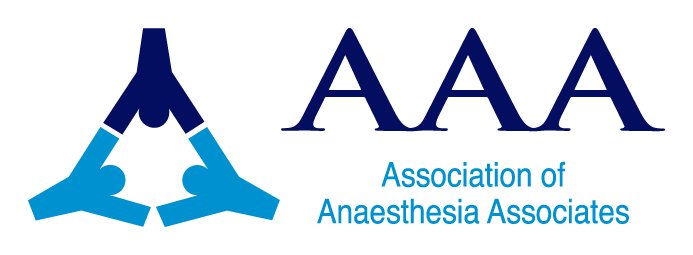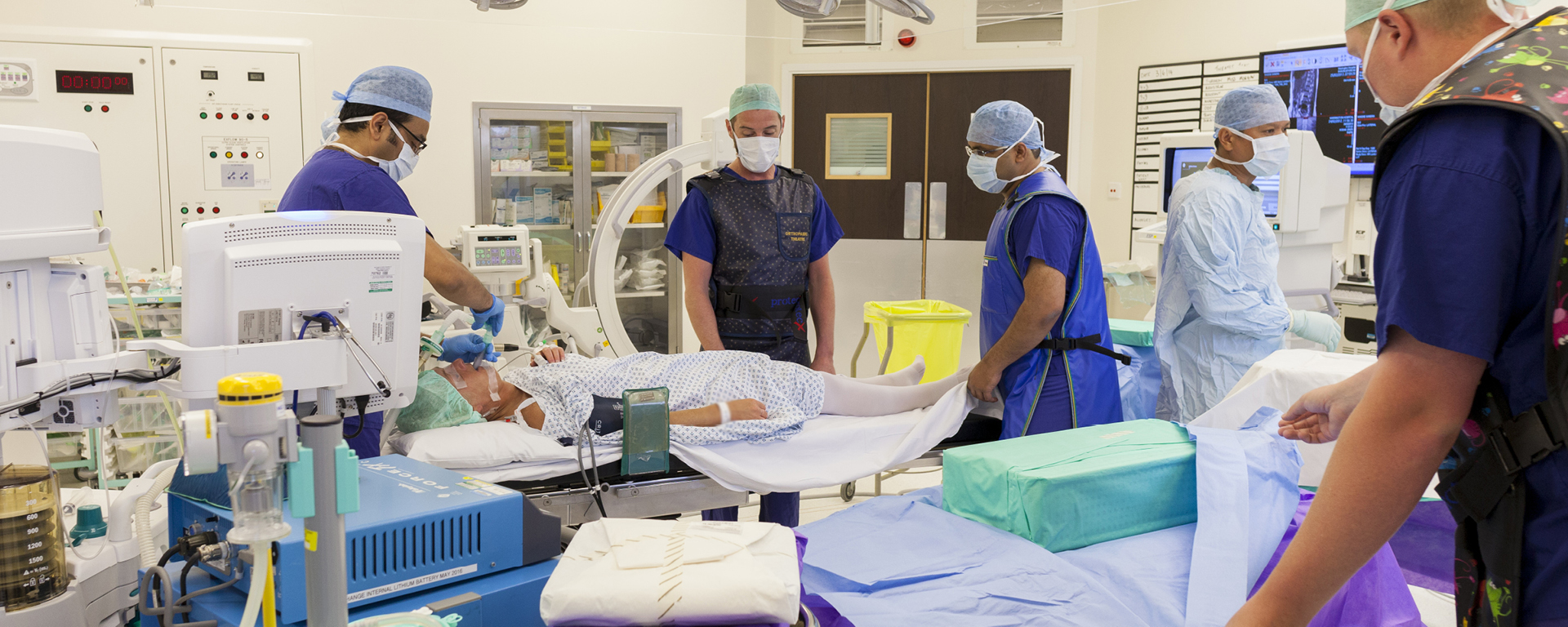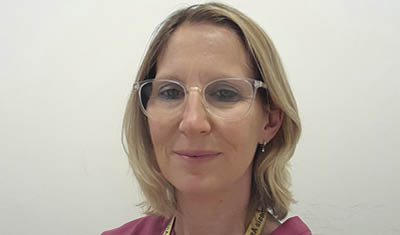Anaesthesia Associates

Anaesthesia Associates (AAs), previously known as (PAAs) physicians’ assistants (anaesthesia), are part of the multi-disciplinary anaesthesia team, led by a consultant anaesthetist, that looks after patients undergoing many aspects of critical care
RCOA video
Am I eligible to become an AA?
To train to become an AA, you must either be:
- A registered healthcare professional, such as a nurse or ODP, with at least three years clinical experience and/or degree level studies, or
- A graduates with a biomedical science or biological science 2:1 honours degree or higher
Where can I train?
University of Birmingham
- 24 month course plus 3 months probationary period
- 12 x 2-month teaching blocks
- Four modules
- Assessed on management of emergencies and advanced practice
- Weekly teaching and tutorials by Consultant anaesthetist
Check out the University of Birmingham website for more information
University College London (UCL)
- 24 month Masters degree
- Online and clinical, with simulations and tutorial groups
- Research project
- Funding and bursaries available
Check out the University College London website for more information
Lancaster Medical School
- Starting in March 2023 - postgraduate diploma in anaesthesia and perioperative sciences
- Online and in-person
- Four taught modules + 1 clinical assessment module
Check out the Lancaster Medical School Postgraduate Study website for more information
What it's like
Anaesthesia Associates play a hugely important role in anaesthesia teams both in & out of theatre. Sarah Massey writes on what it is like to work as an anaesthesia associate & how regulation will make a difference to the profession. https://t.co/5ehXQszRZ3 @gmcuk @AoAA_uk pic.twitter.com/tuZby4o7RY
— Royal College of Anaesthetists (@RCoANews) October 15, 2019
Anaesthesia Associate Curriculum
Specialty Specific Domains
- Perioperative medicine
- General Anaesthesia
- Regional Anaesthesia
- Resuscitation and Transfer
- Procedureal Sedation
- Pain
- Healthcare Promotion
Association of Anaesthesia Associates

An example job description, from the AAA website
To provide anaesthetic services and specialists skills to patients requiring anaesthesia, respiratory care, cardiopulmonary resuscitation and / or other emergency, life sustaining services within anaesthesia and the wider theatre and critical care environments.
AA post holders will not be expected to undertake anaesthetic assistant (anaesthetic nursing or ODP) duties. In line with national recommendation, an anaesthetic assistant will be present at all times to support the AA and medical anaesthetist.
Duties:
- To work competently as a member of the anaesthetic team under appropriate supervision
- To work in accordance with professional anaesthetic standards when assessing patients, planning anaesthetic care and carrying out clinical tasks
- Respect patients' consent and confidentiality
- Work within his or her own competences
Responsibility for Patient Care:
- To evaluate and/or collect patient information from the patient’s history, physical examination, laboratory radiographic and other diagnostic date and identify relevant problems
- Provide specialists skills as required with evidence based practice and according to local protocols to meet patients’ needs
- To refer people to other practitioners when needs and risks are beyond one’s own scope of practice or competence
- To liase with the multidisciplinary team, co-ordinating and participating in case discussions as required
- To support patients/carers encouraging them to promote their own health and wellbeing and to express their interests and concerns
- To provide support and care for the patient and his/her family respecting their need for privacy and dignity
- Maintains accurate written records of care
- Supports and monitors care, promptly alerting the relevant person where there are unexpected changes in the patient’s condition
Responsibility for Policy/ Service Development
- Participates in service improvement plans both for the Directorate and the Trust
- Participates in audit activities
- To assist in the development of protocols and patient group directives within the anaesthetic team
Responsibilities for Human Resources
- Takes a personal responsibility to develop professionally to enable services to meet the needs of patients, staff and the public
- Participates in the training, supervision and mentorship of junior colleagues
- Acts with honesty and integrity at all times and is a positive ambassador for the Trust
- Values and respects patients, colleagues and members of the public
- Generate and share clinical knowledge and expertise with all members of the multi professional team, utilizing any new knowledge feedback to inform and change practice
- To be an active member of the continuing education in-house programmes by the attendance and presentation at staff meetings, tutorials, training sessions, journal clubs, external courses, clinical supervision and reflective practice and to keep an active CPD portfolio
- To be involved in the appraisal system and Trust Development Programmes
- Undertaking annual mandatory training updates and other relevant courses in-line with Trust and local policies
Responsibilities for physical and financial resources
- To be responsible for equipment used in carrying out clinical duties, and to adhere to departmental policy, including competence to use equipment and to ensure the safe use of equipment by others through teaching, training and supervision of practice
- To use resources appropriately to ensure high quality and cost effective service
Communication and leadership
- Communicates effectively with a wide range of people in a manner consistent with their level of understanding, culture and background and preferred ways of understanding
- Gain valid informed consent and have the ability to work within a legal framework with patients who lack capacity to consent to treatment
- Empathetic and reassuring when communicating highly sensitive condition related information and advice to patients, carers and relatives
- Competently receives highly sensitive information concerning patients medical condition and maintains confidentiality at all times
Planning and organising
- Plans anaesthetic provision within a prescribed framework
- To decide priorities for own work area, balancing other patient related and professional demands, and ensures that these remain in accordance with those of the service as a whole
- To demonstrate a sound understanding of Clinical Governance and Risk Management and be able to apply to work situation
- To prioritise the care requirements for identified patients
- To monitor progress of work recognising changing priorities and implement corrective actions within own limits and informing the relevant people
- To assist in the management and organisation of work as required
Partnership working
- Work within the multidisciplinary team to ensure efficient service provision and patient safety
Analytical and Judgemental Skills
- Competent and demonstrates skills to assess and interpret acute patients conditions, taking appropriate action, recognising and managing emergency situations
- To perform/participate in the pre-operative interviewing and physiological assessment of patients under the supervision of the anaesthetist
- To administer and/or participate in the planned administration of general and regional anaesthesia for a variety of surgical and medically related procedures
- To use a variety of techniques, anaesthesia agents, drugs and equipment in providing anaesthesia care
- To interpret and utilise data obtained from invasive and non-invasive equipment
- Analysis and presentation of clinical and non-clinical data for audit and presentation purposes
- Complies with Trust policy on patient confidentiality, Information Governance and the Data Protection Act
Research, Development and Audit
- To keep up to date and act consistently with quality standards and guidelines within their own clinical area and associated areas
- To raise quality issues and related risks with relevant people and follow this up and address poor performance as per Trust policy e.g. complaints, incidents, poor communication
- To lead in the promotion and implementation of evidence based care ensuring that Good Practice is disseminated locally and nationally
- Regularly participate in the critical review of audit, complaints, complements and clinical/non clinical incidents as outlined in directorate protocols with a view to improving patient care as a part of the wider anaesthetic team
- Facilitates the process of audit within the directorate & Trust wide practice
- Undertakes research and leads clinical audits in own specialist area
Equality and Diversity
- To recognise and promote the importance of people’s rights and interpret them in a way that is consistent with trust procedures, policies and legislation
- Respects people’s diversity and values them as individuals
- To challenge behaviour that undermines the rights of others
- To identify and take action where necessary to address discrimination
- Upholds the Trust’s commitment to equality and diversity facilitating public and patient information
- Participates in the development of a culture that promotes equality and values diversity
Health & Safety
- Be aware of the Health and Safety aspects of your work and implement any policies which may be required to improve the safety of your work area, including the prompt recording and reporting of accidents to senior staff, and ensuring that equipment used is safe
- To comply with the organisational and departmental policies and procedures and to be involved in the reviewing and updating as appropriate
- Monitors and maintains health, safety and security of self and others in own work area
- Identifies and assesses potential risks in work activities and proposes how to manage these risks appropriately
- Works within legislation and Trust procedures on risk management
- Takes immediate and appropriate action in relation to adverse incident reporting utilising the hospital incident reporting system.
Freedom to Act
- Works within limits of own competence and responsibility and refers issues beyond these limits to supervising anaesthetist or other appropriate person
- Work to national and local policies and protocols as appropriate
- Promote and contribute to the development of new ways of working in anaesthesia
Detailed Curriculum
RCOA pages for more information


Information for patients
Looking for a Job?
Click the link to see available listings in the UK.
